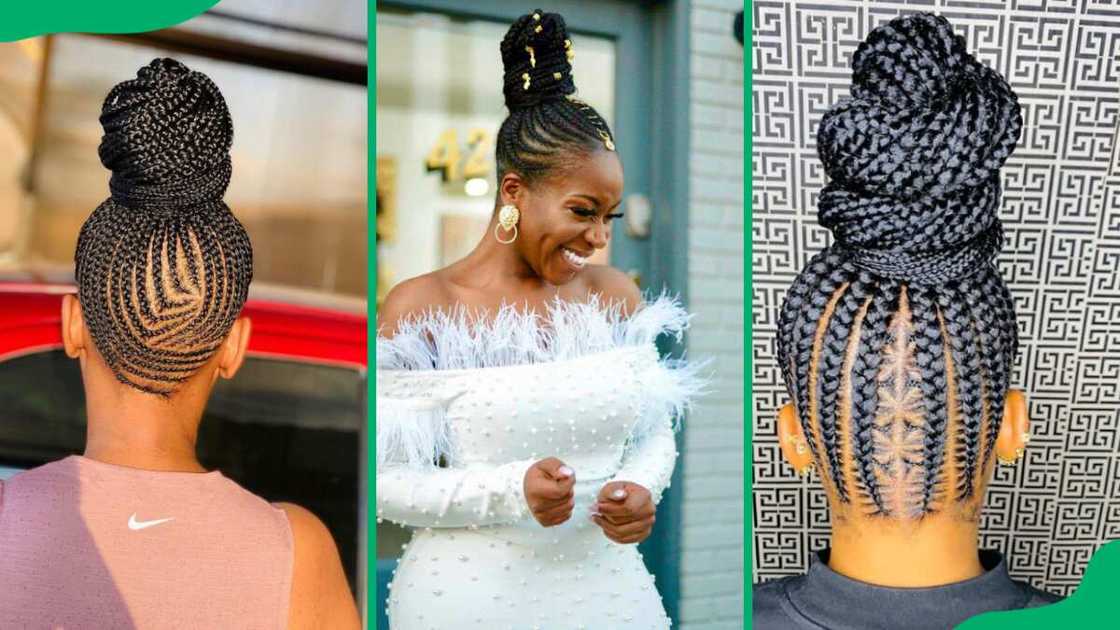Trending Ghana Weaving Shuku: The Perfect Blend of Tradition and Modern Style
Ghana Weaving Shuku, a timeless and elegant hairstyle, is experiencing a resurgence in popularity as people around the world embrace its unique blend of tradition and contemporary style. This intricate braiding technique is known for its striking visual appeal and cultural significance, making it a favorite among fashion-forward individuals who appreciate the artistry and heritage behind African hair styling. Join us as we explore the history, cultural significance, and modern adaptations of the trending Ghana Weaving Shuku, and discover why this captivating hairstyle is capturing hearts everywhere.
The History and Significance of Ghana Weaving Shuku
The Ghana Weaving Shuku, also known simply as Shuku or Suku, is a traditional African hairstyle that dates back centuries. Originating from the Yoruba people of Nigeria, the Shuku style involves braiding the hair in an upward fashion to form a central crest or bun on top of the head. This elegant and regal style has been worn by women across West Africa as a symbol of beauty, sophistication, and cultural identity.
In many African communities, the Shuku style was traditionally reserved for special occasions and important ceremonies, such as weddings, festivals, and rites of passage. It was considered a prestigious hairstyle that showcased the skill and artistry of the braider, as well as the wearer’s social status and pride in their heritage.
The Art of Ghana Weaving Shuku
Ghana Weaving Shuku combines the classic Shuku style with the intricate braiding techniques of Ghana weaving, known for its tight, even cornrows and clean lines. This combination creates a stunning visual effect that enhances the beauty and elegance of the hairstyle. Here’s how the Ghana Weaving Shuku is crafted:
The Weaving Process
- Preparation: The hair is washed, conditioned, and detangled to ensure it is smooth and easy to work with. This preparation is crucial for achieving neat and precise braids.
- Parting and Sectioning: The hair is divided into sections, with each section carefully parted using a fine-toothed comb. The sections are arranged in a pattern that will create the desired design and shape of the Shuku.
- Braiding: The braider begins at the hairline, weaving small sections of hair into tight cornrows that follow the curve of the scalp. As each braid is completed, additional hair is added to maintain the tension and thickness of the braid.
- Forming the Shuku: The braids are directed upwards and gathered at the crown of the head, forming a central bun or crest. The ends of the braids can be wrapped, pinned, or tucked to create a polished and secure finish.
- Finishing Touches: The Shuku can be adorned with decorative elements such as beads, cowrie shells, or hair cuffs to add a personalized and stylish touch.
Modern Adaptations and Trends
In recent years, the Ghana Weaving Shuku has evolved to incorporate modern elements and styling options. Contemporary variations include asymmetrical designs, geometric patterns, and the use of colored extensions to create a bold and eye-catching look. These adaptations have made the Shuku style more versatile and accessible, appealing to individuals who want to make a fashion statement while honoring their cultural roots.
The Cultural Impact and Global Appeal
The resurgence of the Ghana Weaving Shuku in the fashion world reflects a broader movement towards embracing natural hair and celebrating African heritage. As people around the globe become more aware of the cultural significance and beauty of traditional African hairstyles, the Shuku has gained recognition as an iconic and influential style.
Celebrities, influencers, and fashion enthusiasts have all contributed to the growing popularity of the Ghana Weaving Shuku, showcasing its versatility and elegance on social media platforms, red carpets, and fashion runways. This global appreciation for the Shuku style highlights the enduring appeal of African hair art and its ability to transcend cultural boundaries.
Conclusion
The trending Ghana Weaving Shuku is more than just a hairstyle; it is a celebration of culture, creativity, and self-expression. Its intricate designs and timeless elegance make it a captivating choice for those who want to honor tradition while embracing modern fashion. Whether worn as a statement of cultural pride or as a stylish accessory, the Ghana Weaving Shuku continues to inspire and connect people across the globe, reminding us of the rich and diverse tapestry of African heritage. As this beautiful hairstyle continues to evolve and gain recognition, it stands as a testament to the enduring artistry and innovation of African hair styling.








Comments are closed.